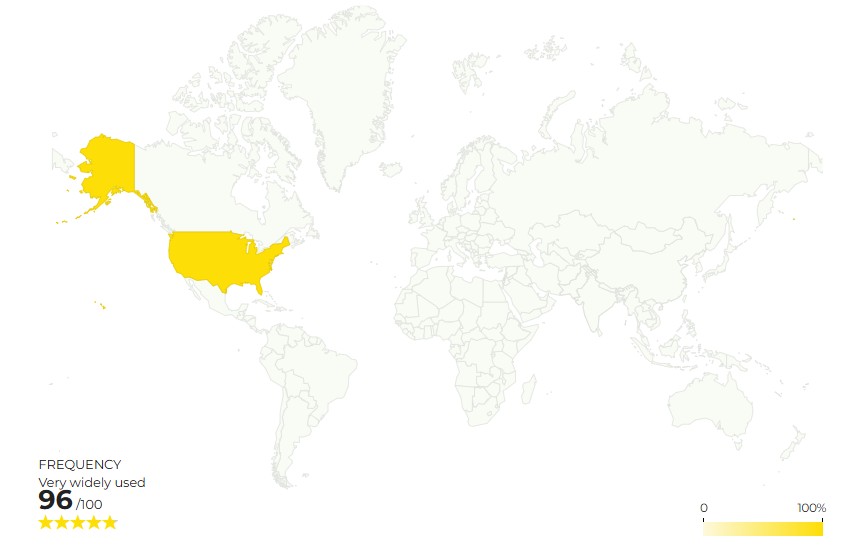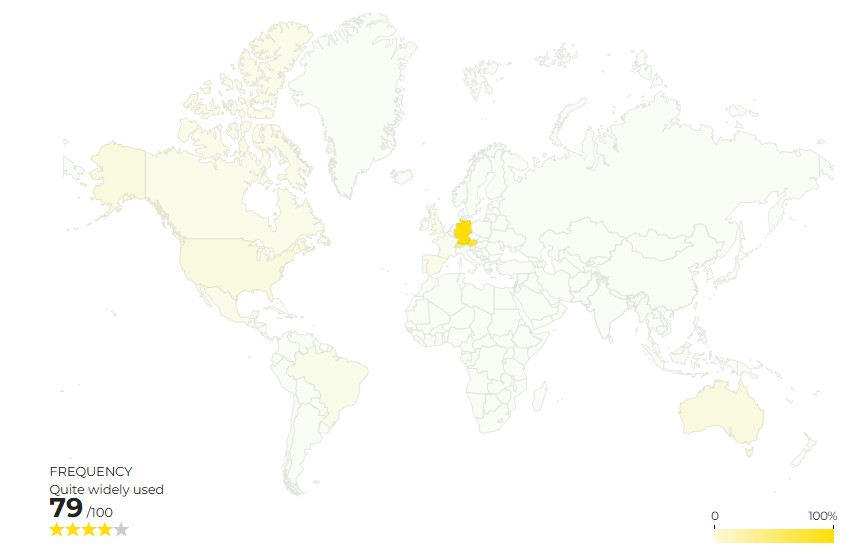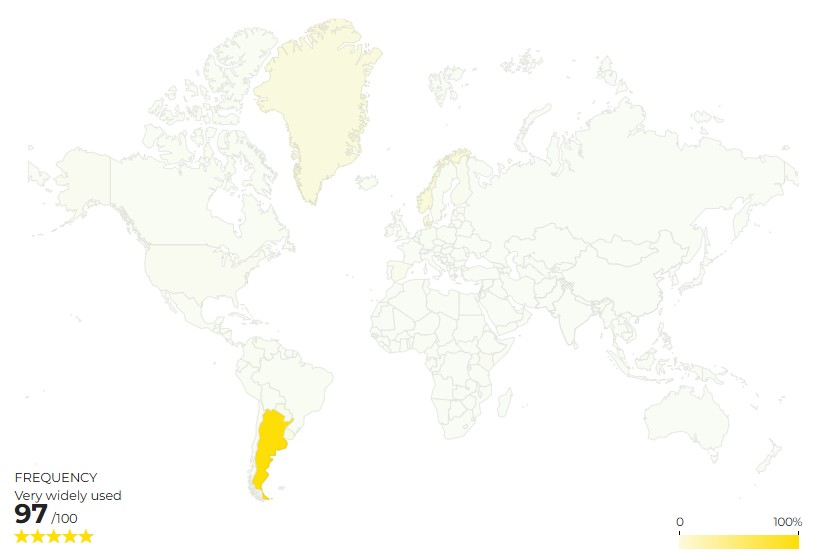
I came across a website today that I thought I could use instead of NGram. This one is more visually appealing, less boring, and also very easy to use. The website I’m referring to is Educalingo. I used it to check whether certain English expressions or words are frequently used.
The first time, I typed in “as per usual” and scrolled down to look at the world map. It showed two yellow areas, and I thought, “OK, ‘as per usual’ is widely used here and here. Cool.”

Happy with my findings, I then typed “doppelgänger.” The highlighted area was Germany this time. “That makes total sense,” I thought, though I got a bit suspicious, since this word appears in English dictionaries too, along with many others borrowed from Germanic languages.

Then I wanted to put the website to the test by introducing something in Spanish. And what word is more commonly associated with my country? “Olé,” of course, though not many people know it’s used much more in southern Spain. So there I went and typed “Olé.”
Before checking the map, I clicked on the speaker icon — with suspicious anticipation — to listen to how “Olé” was pronunced. Not that I didn’t know; it was just a “distrustful check.” It was pretty disappointing, actually. I could clearly hear “OLEY.” Who on Earth says that?
Then I eagerly went to check the map. It said that Argentinians say “Olé” way more than Spaniards! I can’t say I wasn’t surprised, but, well, at the end of the day, they speak Spanish too, so who am I to judge? But then my eyes caught something yellowish and even more surprising. Oh my! Look at that! Do Greenlanders say “Olé” too? Really? Get out of here...
I say “Olé” myself every time I screw something up — which, unfortunately, is pretty often — and I'm not even Andalusian, so what’s happening here? But then I connected the dots: "OLEY" is Greenlander pronounciation of "Olé," mistery solved.

Anyway, I don’t argue anymore — I’ve seen stranger things than that in my language-learning journey. Still, I’ll take a yellow sticky mental note of how easy it is to get tricked by language-learning tools.
Thanks for sharing!
Hi Coral,
The website looks promising at first glance, but I've noticed some inconsistencies using a very simple adjective that exists in Spanish and Portuguese. In Portuguese, this adjective was not classified as adjective, only as substantive although it is frequently used in the Portuguese speaking world, I even dare to say that is more commonly used in Portuguese than in Spanish. Also the representation on the map is not quite accurate. For Spanish the results seem to be more accurate, but I'm not convinced yet.
https://educalingo.com/pt/dic-pt/linda
https://educalingo.com/pt/dic-es/linda
Hey,@ Linda, the pronunciation of "Linda" in Spanish is terrible. It sound like someone is mocking you. : D